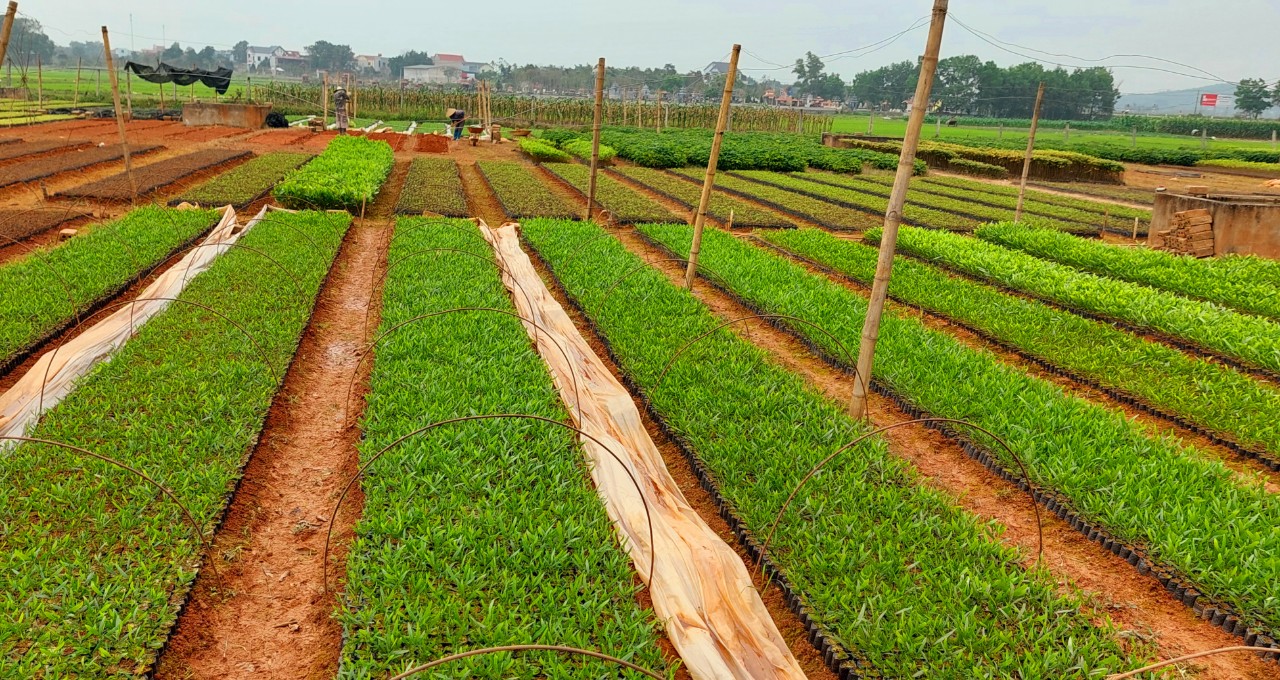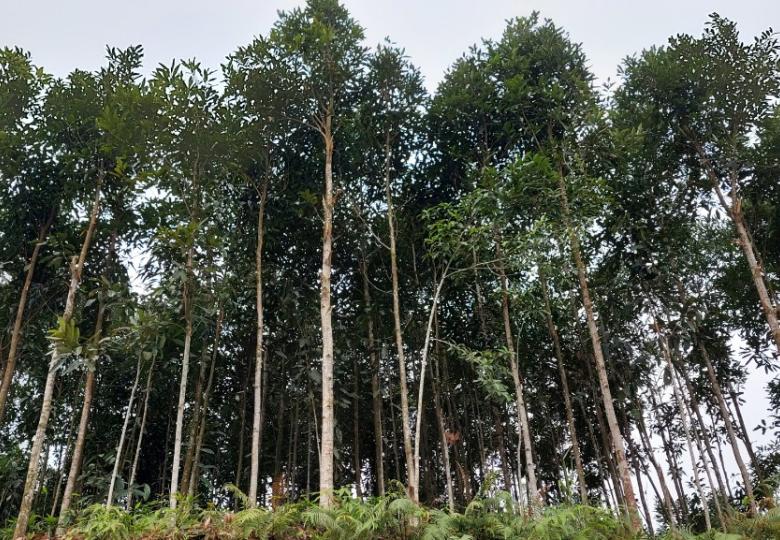Strengthening forest management practices in Vietnam for improved livelihoods and economic development
Forests are important in the global carbon cycle, carbon sequestration and storage. Although Vietnam increases in overall forest cover, there has been a reduction in both total hectares of natural forests and forest quality.
To contribute to reducing land-based emissions and increasing forest carbon sequestration in Vietnam through reduction of deforestation, natural forest degradation and poor timber plantation management practices, USAID Vietnam initiated and implement the USAID Sustainable Forest Management Project (the Project) in seven provinces in Vietnam (Lao Cai, Son La, Hoa Binh, Thanh Hoa, Nghe An, Quang Tri, and Quang Nam) in the period of 2020 – 2025.
Challenges to certification
The majority of the acacia farmers in Vietnam are considered smallholders and they face significant barriers when it comes to certification.
This includes:
- the upfront cost of certification is high
- there is an increased risk of income loss due to storms or fires
- delayed income represents an economic hardship
- many farmers have limited technical capacity
- value chains have already adapted to short rotations
To overcome these barriers, a variety of technical and economic approaches have been used in Vietnam such as innovative insurance or finance products, farmer cooperatives, buyer guarantees and alternative certification schemes. However, very little positive impact has been recorded thus far.
The Project will focus on five main objectives:
- Objective 1: Improve and expand community forest management
- Objective 2: Increase conservation-friendly enterprises in forest-dependent communities
- Objective 3: Increase functionality of law enforcement system for forest crimes
- Objective 4: Improve production forest management practices
- Objective 5: Mobilise domestic resources for forest management and protection
Preferred by Nature will be mainly responsible for Objective 4 but will also contribute to achieving the other objectives.

Project goals
The overall goals of the project are to:
- avoid carbon emissions from natural forest conversion;
- increase carbon sequestration through better management of plantation forests; and,
- improve quality, diversity and productivity of natural production forest.
The Project will implement a “Green Prosperity” approach that strengthens local communities’ ability to protect their natural resource base and reduce emissions while building a strong foundation for sustainable livelihoods and equitable economic growth. Engagement with the private sector and improved co-management by communities, local authorities, and the national government are at the core of project activities.
Improving management practices of acacia plantations
There are a variety of forest management practices that can improve the quality and yield of acacia plantations in the target provinces. These include increasing harvests to eight years or more and avoiding clear cutting or burning of underbrush. Increasing harvests requires access to improved seeds as well as implementation of a variety of silviculture techniques.
The current prevailing practice of three to five-year harvest cycles is driven by ongoing or acute economic drivers and high risk of storm damage. This leads to lower quality and quantity of timber products and are most often good for mainly wood chips or pulp products only. With longer rotations, faster growth rates can be achieved in years five through eight and result in higher quality and simultaneously increase their value in terms of price points.
By improving management practices of acacia plantations, it can lead to:
- Increased carbon sequestration – estimated at 49 metric tons of CO2 equivalent (per hectare) compared to tradition practices.
- Eligibility for certification programmes such as the Forest Stewardship CouncilTM (FSCTM) – certified timber products command a market premium and currently, there is a shortfall of FSC-certified wood products available in Vietnam.
How will it be done?
Prior to implementation, the Project, funded by USAID, we will conduct an assessment on plantation forest management and identify furniture companies to partner with to advance improved management practices. This assessment will also aid in identifying all value propositions, provide methodology for calculating private sector contribution and estimate the value of leveraged resources to achieve the objective.
This Project will help Vietnam adopt improved plantation forest management at scale through several approaches, including:
- increasing awareness and training for improved forest management practices,
- support the production of improved planting material - especially seedlings,
- supporting the development of producer organizations,
- increasing access to certification,
- leveraging partnerships with buyers, and
- increasing access and use of innovative insurance and loan programs.
These approaches will promote both women's and men's participations across all activities involved in production forest management. Currently, women are heavily involved in activities such as nursery tending, seedling preparation and simple processing, while men are responsible for thinning, pruning, enrichment planting and harvesting acacia – including transporting logs from farms to wood selling points. Through this project, the division of roles and responsibilities between both genders will be addressed to the extent possible.

Developing nature-friendly solutions to protect forests against climate change whilst maintaini...
The eco2adapt project is about finding eco-friendly ways to protect our forests in Europe and China. It aims to ensure we pla...

Revitalising the Silam Coast Conservation Area for a sustainable future
The Silam Coast Conservation Area (SCCA) Restoration Project is an eight-year collaborative initiative between Preferred by Nature...

Sustainable Management of Small Forest Properties for Resilient Forests in Europe (SMURF)
Europe's forests, crucial for their ecological and economic value, face mounting threats. Climate change fuels extreme weather eve...

Strengthening forest management practices in Vietnam for improved livelihoods and economic deve...
Forests are important in the global carbon cycle, carbon sequestration and storage. Although Vietnam increases in overall forest c...
